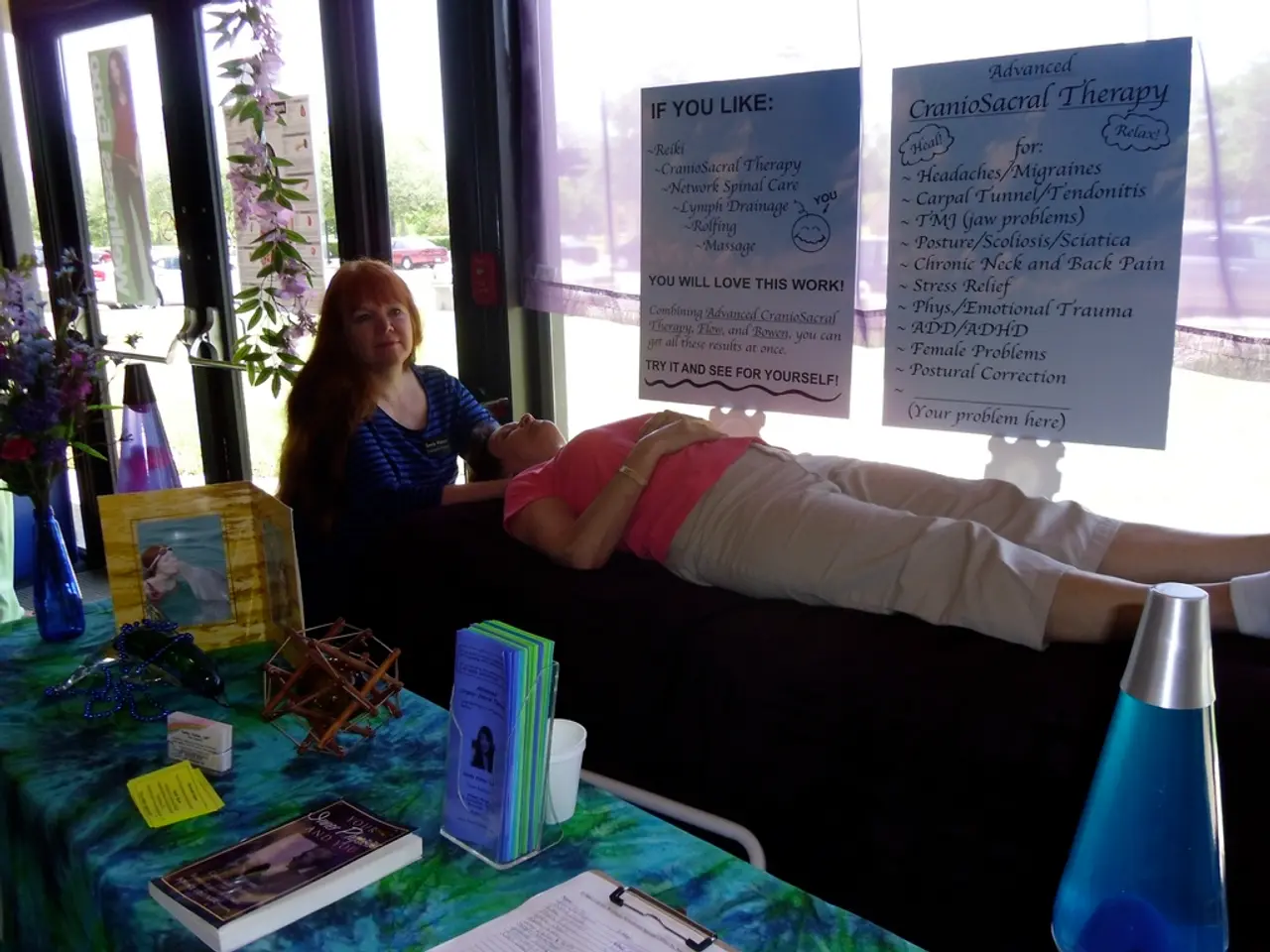Struggling with Self-Criticism: Understanding, Recognizing, and Overcoming Its Effects and Remedies
In the complex tapestry of human emotions, self-loathing and extreme self-criticism stand out as particularly damaging patterns. These feelings of self-hatred and extreme criticism of oneself can significantly impact a person's life, affecting decisions, relationships, and overall well-being.
Self-loathing involves a negative internal narrative that continuously shames, judges, demeans, and finds fault in the self. Cognitive distortions in a person's thought patterns are telltale signs of self-loathing, and may include all-or-nothing thinking, jumping to conclusions, negative mental filter, overgeneralization, catastrophizing, and disqualifying the positive.
Self-loathing can stem from adverse childhood experiences (ACEs) such as trauma, domestic violence, sexual, physical, or emotional abuse, poor family environment, and low self-esteem. It can also be a symptom of underlying mental health conditions, such as major depressive disorder, eating disorders, post-traumatic stress disorder, and narcissistic personality disorder.
Self-loathing affects how a person lives their life, causing them to minimize or ignore the positive and recognize only the negative. It can lead to behaviors such as not feeling good enough, having eating concerns or disorders, feeling overwhelmed or highly stressed, showing a lack of self-care or chronic self-neglect, being in toxic relationships, having co-dependency, and having drug or alcohol dependency. Self-loathing is also a factor in attempted suicide in males.
However, there is hope. Effective strategies for overcoming self-loathing and extreme self-criticism include building self-compassion, setting achievable goals, acknowledging your successes, journaling for self-understanding, using positive affirmations, practicing mindfulness, and seeking constructive feedback.
Build self-compassion by consciously treating yourself with kindness when you encounter failures or shortcomings instead of harsh judgment. This involves shifting from self-hate to self-care.
Set realistic, achievable goals to boost self-worth. Completing goals creates positive experiences and pride, helping to balance negative self-perceptions.
Acknowledge and celebrate your successes, even small ones, to shift focus from failures toward strengths and capabilities. Reflecting on accomplishments regularly reinforces your sense of value.
Journaling helps by allowing you to process emotions, identify the roots of your negative self-view, and track patterns in self-critical thinking. This promotes greater self-understanding and self-belief.
Use positive affirmations to remind yourself of your strengths and capabilities, which can reduce the frequency of negative self-talk.
Incorporate mindfulness and meditation into daily routines to stay present and catch self-critical thoughts early, thus preventing rumination and negativity spirals.
Seek feedback from trusted people who can offer an outside perspective on your self-critical tendencies, helping you gain insight and grow.
Additionally, be cautious of defense mechanisms like avoidance and self-deprecating humor, which may initially protect you from self-hatred but can ultimately isolate you and deepen negative feelings if unaddressed.
Together, these strategies foster a healthier, kinder relationship with yourself and can significantly reduce extreme self-criticism and self-loathing.
If a person thinks someone they know is considering suicide or self-harm, they should encourage them to call a suicide hotline number or visit Befrienders Worldwide to find a helpline in their country. Encouraging someone experiencing a cycle of self-loathing to seek professional help is a good way to support them. A 2019 study found that self-disgust and loneliness predict depressive symptoms, and treatments that can help with self-loathing include mindful self-compassion, cognitive behavioral therapy (CBT), dialectical behavioral therapy, and talk therapy. A 2021 study found that narcissistic personality disorder may mask underlying self-loathing.
Remember, it's okay to seek help. It takes courage to confront and overcome self-loathing, but with the right strategies and support, it is possible to find a more positive and compassionate relationship with yourself.
- Self-loathing, rooted in cognitive distortions and often stemming from adverse childhood experiences, can be a symptom of various mental health conditions.
- By building self-compassion through kind treatment and acknowledging successes, one can shift from self-hate to self-care and reduce extreme self-criticism.
- Journaling, positive affirmations, mindfulness, and seeking constructive feedback can help promote greater self-understanding and self-belief, reducing self-loathing.
- Professional help, including mindful self-compassion, cognitive behavioral therapy, and talk therapy, can be effective in treating self-loathing and its related mental health conditions.
- Encouraging someone struggling with self-loathing to seek professional help or a suicide hotline can be a lifesaving act of support.




